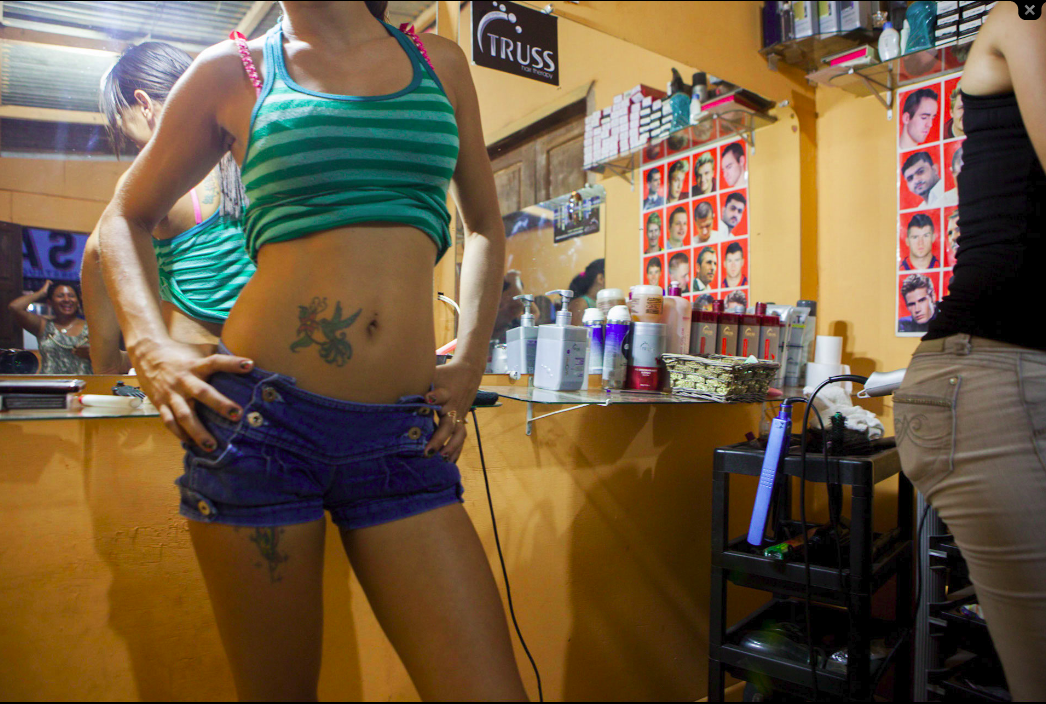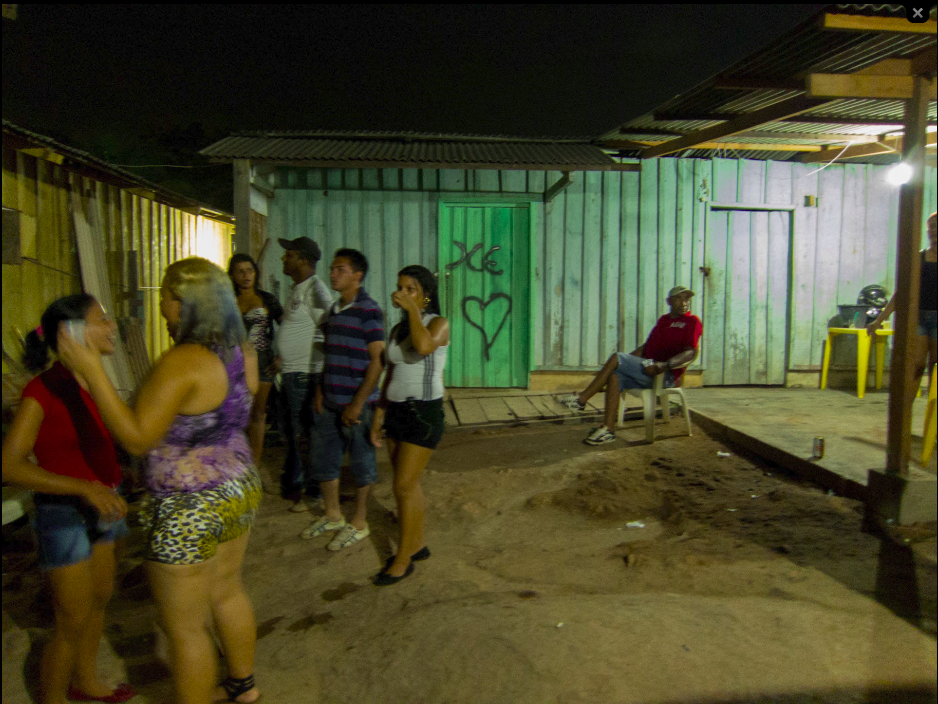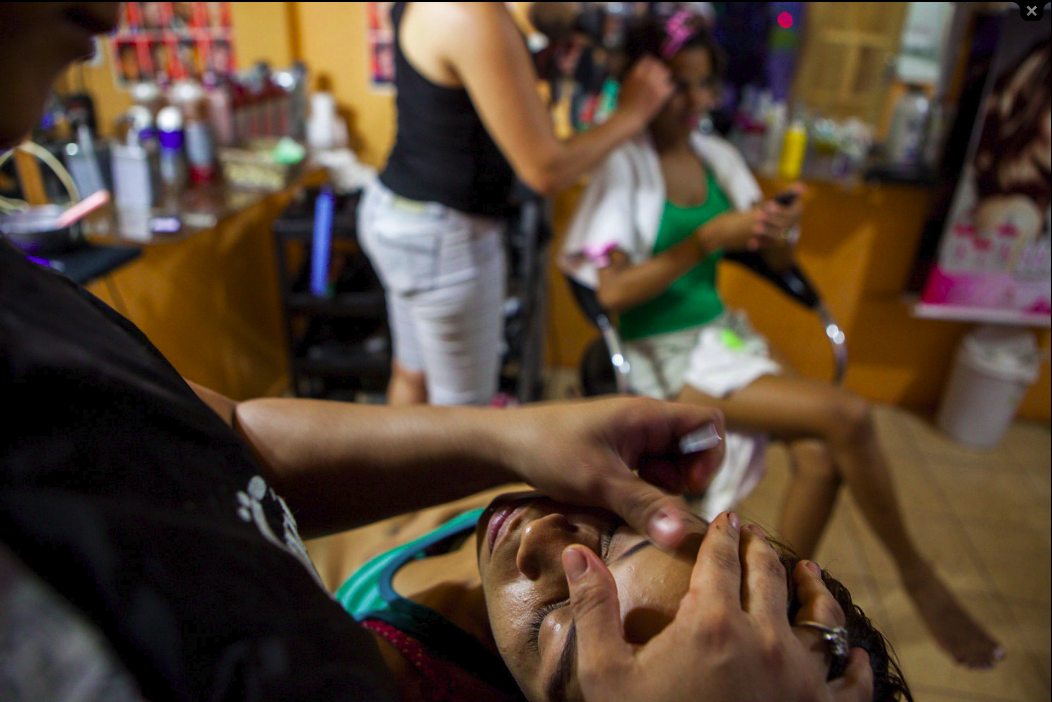This story by Ana Aranha was originally titled Vidas em Trânsito [1] (“Lives in Transit”) and is part of Brazilian investigative journalism agency Pública's special coverage # [2]AmazôniaPública [2], which reports on the impact of mega-construction projects in the Amazon along the Madeira river in the state of Rondônia, Brazil. The story will be published in a series of five posts on Global Voices Online.
Next post: Residents Displaced by Brazilian Power Plant Struggle to Earn Living [3]
Sex and violence are a part of life in the small Brazilian fishing town of Jaci Parana, where police struggle to keep up with crime as a nearby hydroelectric construction project in the state of Rondonia pumps money into the local economy.
Michele (not her real name) is 20 years old. Four months before this interview, she left her hometown in the state of Pará and landed in the fishing town of Jaci Paraná, on the outskirts of Rondônia's capital city, Porto Velho. She found work and shelter in a “brega”, the local name for a brothel, where she began helping out in the cleaning. Two weeks later, she was prostituting, just as “almost all the girls are”:
Quando cheguei aqui, achei triste, chorava toda noite. Essa poeira, as ruas sem asfalto. Eu trabalhava lavando louça, não lembro como fui pela primeira vez. Ele era estranho, levou pó pra cheirar no quarto, queria beijar na boca, transar de novo. Depois chorei. Se fosse na minha cidade, ia ter vergonha, nojo. Aqui é normal, quase todas as meninas fazem. Eu mudei, não sou a mesma mulher.
When I first came here, it was depressing, and I cried every night. The dust, the streets without pavement… I worked washing dishes; can't remember how well I did it the first time. He was weird, took powder with him to sniff in the bedroom, wanted to kiss me on the mouth and have sex again. I cried later. If it had been in my hometown, I would be ashamed, disgusted. Here it is normal, almost all the girls are doing it. I changed, I'm not the same woman anymore.
 [1]
[1]Prostitute in a beauty parlor in Jaci Paraná, the closest town to the Jirau hydroelectric plant. Photo by Marcelo Min.
It's impossible to wander the streets of Jaci and not stumble upon bregas. They are open pubs, sometimes featuring plastic tables on the sidewalk. At night, they play loud music. During the day, it's normal for women to walk around town in shorts with their bellies exposed.
They are in Jaci to offer a service to the thousands of men who come in and out of town in shifts, at 7 a.m. and at 5 p.m. These are the hours when workers begin and finish their shifts at the Jirau hydroelectric plant [4] construction site, one of the largest projects of the Growth Acceleration Program (Programa de Aceleração do Crescimento [5] – PAC), currently being undertaken in Brazil. The plant is located on a dam in the Madeira river in the Amazon forest, and the town of Jaci 20 kilometers away is the nearest urban settlement.
At its peak, the construction boasted a workforce of 25,000 employees, more than double what the project expected. Some workers settled in town, while others just go there for their days off. The Public Ministry of Rondônia estimates the town's population has grown from 4,000 to 16,000 since 2009, when the Jirau hydroelectric construction began. Workers carry around their very own accent of Brazilian Portuguese, from the North, Northeast, South and Mid-West regions of Brazil. Some workers, such as Haitians and Bolivians, haven't mastered the Portuguese language yet.
The majority of workers travelled there alone. They remain away from their homes from three months to one year. “Some of them just want to party, others are sad. They say they cheat on their wives because they need to, but they don't like it”, Michele said:
É trabalho pesado. Quando acaba, eles querem se divertir, beber
It's heavy work. When it's over, they want to have fun, and drink
There are 68 houses of prostitution in Jaci. For Michele, the worst part about the work is when clients get aggressive after having too much alcohol or cocaine, which are supplied in excess at the bregas, or when they request to spend the night with her. “God forbid sleeping with them as if we were husband and wife”.
 [1]
[1]Women work as prostitutes in rooms located at the back of a brega, the local name for a brothel. Photo by Marcelo Min.
The fishing town became a place of transit. People are searching for money, not bonding. There is a constant tension in the air. Sexuality pulsates out from under the short clothes, which sometimes expose women's intimate parts. Stories of fights inside bregas are common – these occur between workers, or between prostitutes. There is a growing tension between Brazilian women and the Bolivian women who moved into town. Many fights end in stabbing, and some end in death.
Where the money goes, crime follows
When its pay day for Jirau plant workers, Jaci Paraná sizzles with their money.
First, at the brothels. Aside from local prostitutes, women from other Brazilian states travel to work only when the worders are paid. According to Michele, some of these women split their time between Jaci and Belo Monte [6], the hydroelectric plant under construction in the state of Pará. Their movements are guided by each plant's pay period.
During those days, the price of sexual services rises notoriously. The most experienced women negotiate up to 200 United States dollars for a half an hour with a high ranking-employee. As Michele has restrictions (she doesn't perform anal sex or group sex), the maximum she has made in a half an hour was 65 US dollars. During regular weeks, she charges 40 US dollars, of which ten belong to her procuress for using the room.
Shirley is one of several hairdressers who moved to Jaci to serve these women. She said:
Quem ganha mesmo são elas, as donas dos bregas, sempre prostitutas muito experientes,
They're the ones profiting, the brega owners. They're usually very experienced women prostitutes.
She doesn't want to make her name public. Shirley said procuresses earn money from room rental, plant workers’ drink consumption, and money loans to prostitutes.
As competition is rough, they offer help so their women may “invest in their beauty”. Michele was convinced by her procuress to abandon her curls for long and straight hair, so bought hair extensions for 575 US dollars. Now she is bound by debt to her procuress for buying the hair extensions and to their hairdresser for the labor. Since then, all of Michele's services go to her procuress, although her debt hasn't gone down at the pace it should:
É assim mesmo, elas mandam as meninas aqui e depois não passam o dinheiro do trabalho delas.
That's the way it is. They send girls here, and then they won't pass on the cash for their services.
Beside the bregas, beauty parlors are the second commercial activity to benefit from the flow of paychecks from the Jirau plant construction site. There's one beauty parlor on every corner of the town. Ever since she began doing hair extensions, Shirley has managed to earn more than her husband, who is in charge of building Jirau's hydroelectric turbines.
 [1]
[1]Jaci Paraná features 68 houses of prostitution and one beauty parlor on every corner. Photo by Marcelo Min.
It is dangerous, however, to accumulate goods in Jaci. Public security's fragile structure is powerless before the force of money circulating in town. Two weeks before this interview, Shirley's house was robbed, and her husband was held as hostage. The loss in money and electronic equipment exceeded 10,000 US dollars, but she won't complain to the police because everyone knows who the robbers are and what they do.
Police are powerless against local crime. Shopkeepers now pay a private company to drive around the town's three main streets with their well-identified cars and motorcycles. In September 2012, the military police chief of Jaci was murdered inside a police office. The same group responsible surrendered other police officers, who were forced to lie down on the street facing the pavement, while the robbers blew up the cash machines at the small Bradesco bank agency.